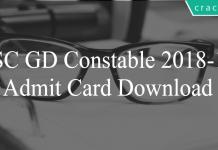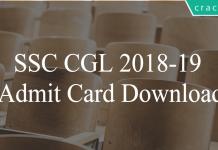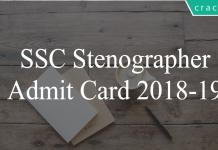Odd One Out Questions For SSC GD PDF
SSC GD Constable Odd One Out Question and Answers download PDF based on previous year question paper of SSC GD exam. 40 Very important Odd One Out questions for GD Constable.
Odd One Out Questions For SSC GD PDF
GET 20 SSC GD MOCK FOR JUST RS. 117
Instructions
In the following questions, find the odd number/letters /word pair from the given alternatives.
Question 1:
a) 12 – 27
b) 43 – 343
c) 37 – 1000
d) 41 – 8
Question 2:
a) 20 – 81
b) 12 – 36
c) 34 – 289
d) 42 – 441
Question 3:
a) 47 – 22
b) 34 – 14
c) 28 – 20
d) 39 – 26
Question 4:
a) 46 – 4
b) 23 – 16
c) 17 – 36
d) 14 – 9
Question 5:
a) 24 – 3
b) 82 – 5
c) 48 – 7
d) 17 – 4
Question 6:
a) 43 – 14
b) 38 – 22
c) 42 – 12
d) 21 – 8
Question 7:
a) 37 – 25
b) 24 – 9
c) 20 – 4
d) 17 – 16
Question 8:
a) 43 – 32
b) 31 – 16
c) 12 – 9
d) 11 – 4
Question 9:
a) 42 – 6
b) 81 – 9
c) 23 – 4
d) 34 – 7
Question 10:
a) 22 – 121
b) 14 – 64
c) 34 – 289
d) 18 – 81
DOWNLOAD APP TO ACESS DIRECTLY ON MOBILE
Question 11:
a) 17 – (-1)
b) 23 – 2
c) 49 – 23
d) 27 – 5
Question 12:
a) 14 – 9
b) 23 – 36
c) 42 – 64
d) 52 – 100
Question 13:
a) 24 – 216
b) 13 – 64
c) 17 – 512
d) 21 – 8
Question 14:
a) 17 – 64
b) 23 – 25
c) 12 – 16
d) 19 – 100
Question 15:
a) 4 : 8
b) 12 : 36
c) 14 : 168
d) 9 : 63
FREE SSC PRACTICE SET (DAILY TEST)
Question 16:
a) 3 – 22
b) 13 – 14
c) 2 – 25
d) 6 – 21
Question 17:
a) 16 – 219
b) 14 – 179
c) 23 – 520
d) 24 – 556
Instructions
In the following question, four groups of three numbers are given. In each group the third number is related to the first and second numbers by a Logic/Rule/Relation. Three are similar on basis of same Logic/Rule/Relation. Select the odd one out from the given alternatives.
Question 18:
a) (16,24,42)
b) (34,81,61)
c) (14,23,25)
d) (18,72,81)
Question 19:
a) (12,26,78)
b) (36,4,36)
c) (14,16,56)
d) (32,22,64)
Question 20:
a) (36,12,20)
b) (14,18,16)
c) (24,16,20)
d) (20,8,14)
Question 21:
a) (24,16,85)
b) (35,42,59)
c) (24,15,72)
d) (17,21,29)
Question 22:
a) (19,28,10)
b) (21,14,2)
c) (22,26,6)
d) (17,28,9)
Question 23:
a) (12,26,24)
b) (14,27,45)
c) (18,42,54)
d) (36,29,97)
Question 24:
a) (16,18,48)
b) (21,42,14)
c) (14,29,72)
d) (15,32,30)
Question 25:
a) (24,32,14)
b) (36,12,15)
c) (28,14,20)
d) (26,18,20)
Question 26:
a) (5,8,27)
b) (12,6,54)
c) (7,9,47)
d) (16,3,27)
Question 27:
a) (27,34,16)
b) (39,21,12)
c) (8,14,13)
d) (12,18,12)
Question 28:
a) (24,8,22)
b) (20,4,18)
c) (12,18,42)
d) (14,2,11)
Question 29:
a) (6,8,16)
b) (4,12,14)
c) (14,22,36)
d) (24,26,61)
Question 30:
a) (4,7,22)
b) (14,18,62)
c) (4,6,20)
d) (9,12,42)
Question 31:
a) (16,18,17)
b) (22,14,18)
c) (12,24,18)
d) (2,8,6)
Instructions
In the following question, four groups of three numbers are given. In each group the third number is related to the first and second numbers by a Logic/Rule/Relation. Three are similar on basis of same Logic/Rule/Relation. Select the odd one out from the given alternatives.
Question 32:
a) (4,7,27)
b) (3,5,16)
c) (9,3,26)
d) (4,8,31)
Question 33:
a) (7,12,65)
b) (3,7,11)
c) (8,4,20)
d) (4,7,15)
Instructions
In each of the following questions, find the odd word/letters/number pair from the given alternatives.
Question 34:
a) BYZ
b) DVX
c) XCD
d) GTU
Question 35:
a) FHT
b) LMN
c) BCX
d) TUF
Question 36:
a) ZXY
b) DEC
c) HFG
d) LJK
Question 37:
a) DV
b) XB
c) LN
d) GU
Question 38:
a) BAC
b) TSU
c) WUX
d) GFH
Question 39:
a) FEC
b) IJH
c) MNL
d) UVT
Question 40:
a) BDG
b) LNP
c) ACF
d) DGJ
Answers & Solutions:
1) Answer (D)
$12 → (1+2)^3 = 3^3 = 27$
$43 → (4+3)^3 = 7^3 = 343$
$37 → (3+7)^3 = 10^3 = 1000$
$41 → (4+1)^3 = 5^3 = 125$
2) Answer (A)
$12 → (12/2)^2 = 6^2 = 36$
$34 → (34/2)^2 = 17^2 = 289$
$42 → (42/2)^2 = 21^2 = 441$
Hence, Option A should be
$20 → (20/2)^2 = 10^2 = 100$ but not 81.
Hence, Option A is correct answer
3) Answer (D)
47 → 4+7 = 11 → 2*11 = 22
34 → 3+4 = 7 → 2*7 = 14
28 → 2+8 = 10 → 2*10 = 20
39 → 3+9 = 12. 2*12 = 24 but not 26.
Hence, Option D is correct answer.
4) Answer (B)
46 → Difference = 2. $2^2 = 4$
23 → Difference = 1. $1^2 = 1$ but not 16
17 → Difference = 6. $6^2 = 36$
14 → Difference = 3. $3^2 = 9$
Hence, Option B is correct answer.
5) Answer (C)
24 → (2+4)/2 = 6/2 = 3
82 → (8+2)/2 = 10/2 = 5
48 → (4+8)/2 = 12/2 = 6 but not 7
17 → (1+7)/2 = 8/2 = 4
Hence, Option C is correct answer.
6) Answer (D)
43 → 4+3 = 7. 7*2 = 14
38 → 3+8 = 11. 11*2 = 22
42 → 4+2 = 6. 6*2 = 12
21 → 2+1 = 3. 3*2 = 6 but not 8.
Hence, Option D is correct answer.
7) Answer (C)
$37 → 3+7 = 10 → (10/2)^2$ = 25
$24 → 2+4 = 6 → (6/2)^2$ = 9
$20 → 2+0 = 2 → (2/2)^2$ = 1 but not 4
$17 → 1+7 = 8 → (8/2)^2$ = 16
Hence, Option C is correct answer.
8) Answer (A)
$43 → (4+3)^2 = 7^2 = 49$
$31 → (3+1)^2 = 4^2 = 16$
$12 → (1+2)^2 = 3^2 = 9$
$11 → (1+1)^4 = 2^2 = 4$
Hence, Option A is correct answer.
9) Answer (C)
42 → 4+2 = 6
81 → 8+1 = 9
23 → 2+3 = 5 but not 4
34 → 3+4 = 7. Hence, Option C is correct answer.
10) Answer (B)
$121 = (22/2)^2 = 11^2$
$289 = (34/2)^2 = 17^2$
$81 = (18/2)^2 = 9^2$
But in Option B, $(14/2)^2 = 7^2 = 49$ but not 64.
Hence, Option B is correct answer.
11) Answer (B)
17 → (1*7)-(1+7) = 1.
23 → (2*3)-(2+3) = 1 but not 2.
49 → (4*9)-(4+9) = 23
27 → (2*7)-(2+7) = 5.
Hence, Option B is correct answer
12) Answer (A)
$23 → (2*3)^2 = 6^2 = 36$
$42 → (4*2)^2 = 8^2 = 64$
$52 → (5*2)^2 = 10^2 = 100$
But in Option A,
$14 → (1*4)^2 = 4^2 = 16$ but not 9.
Hence, Option A is correct answer.
13) Answer (D)
$24$ → $(2+4)^3 = 6^3 = 216$
$13$ → $(1+3)^3 = 4^3 = 64$
$17$ → $(1+7)^3 = 8^3 = 512$
$21$ → $(2+1)^3 = 3^3 = 27$ but not $8$
Hence, Option D is correct answer.
14) Answer (C)
17 → $(1+7)^2 = 8^2 = 64$
23 → $(2+3)^2 = 5^2 = 25$
12 → $(1+2)^2 = 3^2 = 9$ but not 16
19 → $(1+9)^2 = 10^2 = 100$.
Hence, Option C is correct answer.
15) Answer (B)
All the given number pairs are in the form of $x : (x\times(x-2))$
$4 : 8 → 4 : (4\times(4-2)) = 4 : (4\times2) = 4 : 8$
$12 : 36 → 12 : (12\times(12-2)) = 12 : (12\times10) = 12 : 120$ but not $12 : 36$
$14 : 168 → 14 : (14\times(14-2)) = 14 : (14\times12) = 14 : 168$
$9 : 63 → 9 : (9\times(9-2)) = 9 : (9\times7) = 9 : 63$
Hence, Option B is correct answer.
16) Answer (A)
Consider given numbers as place values of English alphabets.
Option B → 13 – 14 → M – N
Option C → 2 – 25 → B – Y
Option D → 6 – 21 → F – U.
Here, all these pairs have alphabets opposite to each other.
But in Option A → 3 – 22 → C – V. Here, C and V are not opposite to each other.
Hence, Option A is correct answer.
17) Answer (C)
$16^2 – (1^2+6^2) = 256 – (1+36) = 256 – 37 = 219$
$14^2 – (1^2+4^2) = 196 – 17 = 179$
$23^2 – (2^2+3^2) = 529 – 13 = 516$ but not 520.
$24^2 – (2^2+4^2) = 576 – 20 = 556$
Hence, Option C is correct answer.
18) Answer (B)
16,24 → (1+6)*(2+4) = 7*6 = 42
34,81 → (3+4)*(8+1) = 7*9 = 63 but not 61
14,23 → (1+4)*(2+3) = 5*5 = 25
18,72 → (1+8)*(7+2) = 9*9 = 81.
Hence, Option B is correct answer.
19) Answer (D)
12/2 = 6. 26/2 = 13. 6*13 = 78
36/2 = 18. 4/2 = 2. 18*2 = 36
14/2 = 7. 16/2 = 8. 7*8 = 56
32/2 = 16. 22/2 = 11. 16*11 = 176 not 64.
Hence, Option D is correct answer.
20) Answer (A)
36/2 = 18, 12/2 = 6. 18+6 = 24 but not 20
14/2 = 7. 18/2 = 9. 7+9 = 16
24/2 = 12, 16/2 = 8. 12+8 = 20
20/2 = 10, 8/2 = 4, 10+4 = 14.
Hence, Option A is correct answer.
21) Answer (C)
24,16 → Writing 16 in reverse → 61. 24+61 = 85
35,42 → Writing 42 in reverse → 24. 35+24 = 59
24,15 → Writing 15 in reverse → 51. 24+51 = 75 but not 72
17,21 → Writing 21 in reverse → 12. 17+12 = 29
Hence, Option C is correct answer.
22) Answer (B)
19,28 → 1+9+2+8 = 20. 20/2 = 10
21,14 → 2+1+1+4 = 8. 8/2 = 4 but not 2
22,26 → 2+2+2+6 = 12. 12/2 = 6
17,28 → 1+7+2+8 = 18. 18/2 = 9
Hence, Option B is correct answer.
23) Answer (D)
12,26 → (1+2)*(2+6) = 3*8 = 24
14,27 → (1+4)*(2+7) = 5*9 = 45
18,42 → (1+8)*(4+2) = 9*6 = 54
36,29 → (3+6)*(2+9) = 9*11 = 99 but not 97.
Hence, Option D is correct answer.
24) Answer (B)
16,18 → 1*6*1*8 = 48
21,42 → 2*1*4*2 = 16 but not 14
14,29 → 1*4*2*9 = 72
15,32 → 1*5*3*2 = 30
25) Answer (B)
24,32 → 2*4+3*2 = 8+6 = 14
36,12 → 3*6+1*2 = 18+2 = 20 but not 15
28,14 → 2*8+1*4 = 16+4 = 20
26,18 → 2*6+1*8 = 12+8 = 20
Hence, Option B is correct answer.
26) Answer (D)
(5*8)-(5+8) = 40-13 = 27
(12*6)-(12+6) = 72-18 = 54
(7*9)-(7+9) = 63-16 = 47
(16*3)-(16+3) = 48-19 = 29 but not 27.
Hence, Option D is correct answer.
27) Answer (B)
27,34 → 2+7+3+4 = 16
39,21 → 3+9+2+1 = 15 but not 12
8,14 → 8+1+4 = 13
12,18 → 1+2+1+8 = 12.
Hence, Option B is correct answer.
28) Answer (A)
$\frac{24}{2}+8\times2 = 12+16 = 28$ but not 22
$\frac{20}{2}+4\times2 = 10+8 = 18$
$\frac{12}{2}+18\times2 = 6+36 = 42$
$\frac{14}{2}+2\times2 = 7+4 = 11$
Hence, Option A is correct answer.
29) Answer (C)
$6\times2+\frac{8}{2} = 12+4 = 16$
$4\times2+\frac{12}{2} = 8+6 = 14$
$14\times2+\frac{22}{2} = 28+11 = 39$ but not 36
$24\times2+\frac{26}{2} = 48+13 = 61$
Hence, Option C is correct answer.
30) Answer (B)
4*2+7*2 = 8+14 = 22
14*2+18*2 = 28+36 = 64 but not 62
4*2+6*2 = 8+12 = 20
9*2+12*2 = 18+24 = 42. Hence, Option B is correct answer.
31) Answer (D)
$\frac{16}{2}+\frac{18}{2} = 8+9 = 17$
$\frac{22}{2}+\frac{14}{2} = 11+7 = 18$
$\frac{12}{2}+\frac{24}{2} = 6+12 = 18$
$\frac{2}{2}+\frac{8}{2} = 1+4 = 5$ but not 6. Hence, Option D is correct answer.
32) Answer (B)
(4*7)-1 = 28-1 = 27
(3*5)-1 = 15-1 = 14 but not 16
(9*3)-1 = 27-1 = 26
(4*8)-1 = 32-1 = 31.
Hence, Option B is correct answer.
33) Answer (D)
(7*12)-(7+12) = 84-19 = 65
(3*7)-(3+7) = 21-10 = 11
(8*4)-(8+4) = 32-12 = 20
(4*7)-(4+7) = 28-11 = 17 but not 15.
Hence, Option D is correct answer.
34) Answer (B)
The opposite letter of B is Y. Y+1 = Z.
The opposite letter of X is C. C+1 = D.
The opposite letter of G is T. T+1 = U.
But in DVX, The opposite letter of D is not V. Hence, DVX is odd.
35) Answer (A)
L+1 = M. The opposite letter of M is N.
B+1 = C. The opposite letter of C is X.
T+1 = U. The opposite letter of U is F.
But in FHT, F+2 = H and T is not opposite letter of H.
Hence, FHT is odd.
36) Answer (B)
Z-2 = X, X+1 = Y
D+1 = E, E-2 = C
H-2 = F, F+1 = G
L-2 = J, J+1 = K
From the above equations, DEC is different from the other three. Hence, DEC is odd.
37) Answer (D)
The opposite letter of D is W. W-1 = V. → DV
The opposite letter of X is C. C-1 = B. → XB
The opposite letter of L is O. O-1 = N → LN
The opposite letter of G is T. T+1 = U. → GU.
Here, GU is different from other three alphabets.
Hence, GU is odd.
38) Answer (C)
B-1 = A, A+2 = C → BAC
T-1 = S, S+2 = U → TSU
W-2 = U, U+3 = X → WUX
G-1 = F, F+2 = H → GFH
From the above equations, WUX is odd.
39) Answer (A)
F-1 = E. E-2 = C → FEC
I+1 = J, J-2 = H → IJH
M+1 = N, N-2 = L → MNL
U+1 = V, V-2 = T → UVT
From the above equations, FEC is odd.
40) Answer (B)
The given series is a missing consonant series.
Consider all consonants of English alphabetical series.
C and F are missing in BDG.
B and D are missing in ACF.
F and H are missing in DGJ.
Only M is missing in LNP.
Hence, LNP is odd.
DOWNLOAD APP FOR SSC FREE MOCKS
We hope this Odd One Out questions for SSC GD will be highly useful for your preparation.





